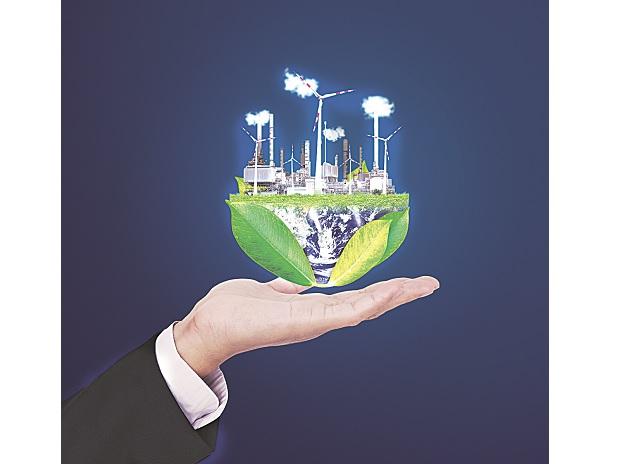The Centre on Friday submitted its updated ‘nationally determined contributions’ (NDCs) to the United Nations Framework Convention on Climate Change (UNFCC). This is in line with the commitment made by Prime Minister Narendra Modi at the Conference of Parties (COP26) last year.
The NDCs cover a period up to 2030 and are a step towards the country’s long-term goal of reaching net zero by 2070, said the submission by the ministry of environment, forest and climate change (MoEFCC).
The country has submitted eight key NDCs, of which two are updates on our existing targets. India had last submitted its NDC in 2016. The Union Cabinet — earlier during the month — approved the country’s official NDC submission.
The ministry — in its cover letter to the UNFCC — however, said, India’s NDCs “do not bind it to any sector-specific mitigation obligation and target.”
It said, India’s goal is to reduce overall emission intensity and improve energy efficiency of its economy over time. This would protect the vulnerable sectors of the economy and segments of the society.
India has updated its target to reduce emission intensity of its GDP by 45 per cent by 2030, from 2005. It was earlier 30 per cent. It has also updated the target of capacity addition from non-fossil fuel sources.
India said it will achieve about 50 per cent cumulative electric power installed capacity from non-fossil fuel-based energy resources by 2030.
It said this target will be “with the help of transfer of technology and low-cost international finance, including from Green Climate Fund (GCF).”
During COP26, the PM had said India will build 500 Gw of renewable energy capacity, but that has not been a part of the official submission. It has also updated its NDC of propagating climate consciousness by including the submission made by the PM during his address at COP26.
“India will propagate a healthy and sustainable way of living based on traditions and values of conservation and moderation, including through a mass movement for ‘LIFE’— ‘Lifestyle for Environment’ — as a key to combating climate change,” said the NDC submission.
The country has added a new target of creating an additional carbon sink of 2.5 to 3 billion tonnes of carbon dioxide equivalent through additional forest and tree cover by 2030.
India also said it will need new and additional funds from developed countries to implement its mitigation and adaptation actions “in view of the resource required and the resource gap.” It also said adaptation policies would be built to support sectors vulnerable to climate change.
 Dear Reader,
Dear Reader,
Business Standard has always strived hard to provide up-to-date information and commentary on developments that are of interest to you and have wider political and economic implications for the country and the world. Your encouragement and constant feedback on how to improve our offering have only made our resolve and commitment to these ideals stronger. Even during these difficult times arising out of Covid-19, we continue to remain committed to keeping you informed and updated with credible news, authoritative views and incisive commentary on topical issues of relevance.
We, however, have a request.
As we battle the economic impact of the pandemic, we need your support even more, so that we can continue to offer you more quality content. Our subscription model has seen an encouraging response from many of you, who have subscribed to our online content. More subscription to our online content can only help us achieve the goals of offering you even better and more relevant content. We believe in free, fair and credible journalism. Your support through more subscriptions can help us practise the journalism to which we are committed.
Support quality journalism and subscribe to Business Standard.
Digital Editor



 Dear Reader,
Dear Reader,

GIPHY App Key not set. Please check settings